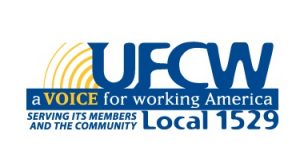Have you ever been promised something by your boss, only to have it fall through later? It may be a promise to give you more hours, let you take time off, or give you a promotion or a raise. There are plenty of times when for one reason or another, employers or managers don’t come through on a promise they made and you’re left trying to figure out how to adapt.
You don’t even have to have a bad manager for this to happen, sometimes your boss just might not have had all the right information when they spoke to you, or perhaps the final say was above their pay grade. Some well-intentioned managers may even just not like saying no, even when they know they don’t have the authority to actually promise you something. Whatever the reason, in the end it often feels like there’s not much you can do about it but hope for better luck next time.
You don’t need to rely on luck.
When it comes to your job, whether you’re just starting out or you’ve been working there a while, you need to know that you can count on a promise your boss makes to you. Sometimes they will come through and make good, but that’s not always the case. That’s why you need to make sure you get it in writing. And that’s where a contract can help you.
Your time and effort has value – act like it!
When companies do business with each other, they can’t just rely on promises– they put agreements down in writing where they are legally binding. But while this is accepted as normal for businesses, we have a harder time thinking of the work employees do as having the same level of value and deserving of the same commitment and respect.
Instead of relying on awkward favors, a contract creates a way for two parties with different interests to work together. One of the most powerful but often overlooked benefits to belonging to a union is that you and your coworkers can draw up a contract of your own and have that same level of clarity and security.
A contract spells out all the agreements between you and your employer. This can include how much you get paid, your benefits, holiday/sick days, personal time off, your pension, scheduling agreements, health and safety standards, staffing, and more. Unlike a company handbook, you have a say in what goes into it, and you can have the peace of mind of knowing it can’t be changed without your knowledge or input.
Contracts can also help ease possible tensions between you and your managers by making it really clear what the agreed upon rules are, as well as what to do when they are violated. Confronting your manager one on one can end up feeling like a personal attack or criticism with someone you have to work with every day and maintain a good relationship with. In the end, many people just decide to let minor problems go rather than risk creating an uncomfortable situation or even just seeming like they aren’t a team player. In the end, that isn’t a very good way to get problems solved. With a written contract and union representation you have someone to call who isn’t your boss who can help you get the issue resolved.
Never forget that you’ve already earned it.
When you have a strong contract that protects your rights as an employee and the promises your employer makes, you can rest easy knowing exactly what you’re getting in exchange for your hard work.
You work hard every day. When a promise is made to you, you deserve better than being expected to just take someone’s word for it.



